Abstract
Social relations between two persons require that consequences each receives depend at least in part on the responses of the other. Historically, research in several areas has focused on two contingencies, cooperation and competition, in which reinforcement is determined by the responses of both participants. A major research question in social psychology and applied behavior analysis has been: Which contingency is more effective with regard to the quantity or quality of some response? Although this question has not been addressed in the experimental analysis of behavior, this area provides a perspective and method to more fully investigate the relevant controlling variables. Among these are the frequency of opportunities to audit the performances of others, information (or lack of it) provided by social or nonsocial stimuli with regard to reinforcement and performance, degree of face-to-face interaction, types of reinforcement contingencies, and number of participants. A neglected dependent variable is cost effectiveness—amount of behavior maintained by a given reinforcer amount. The larger agenda for the experimental analysis of interpersonal relations includes a variety of forms of reinforcement interdependence that raise issues of basic and applied interest.
Keywords: interpersonal relations, social behavior, cooperation, competition, social stimuli, social audits, reinforcement contingencies
Full text
PDF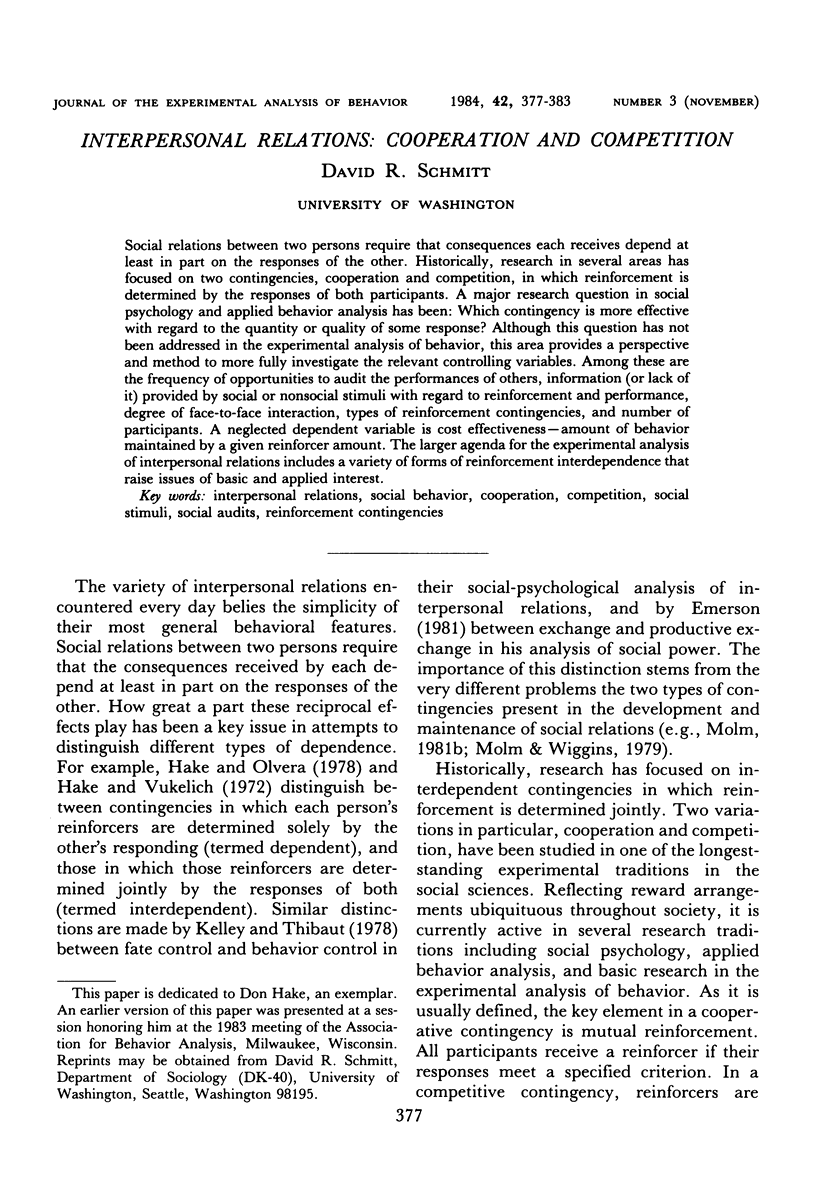
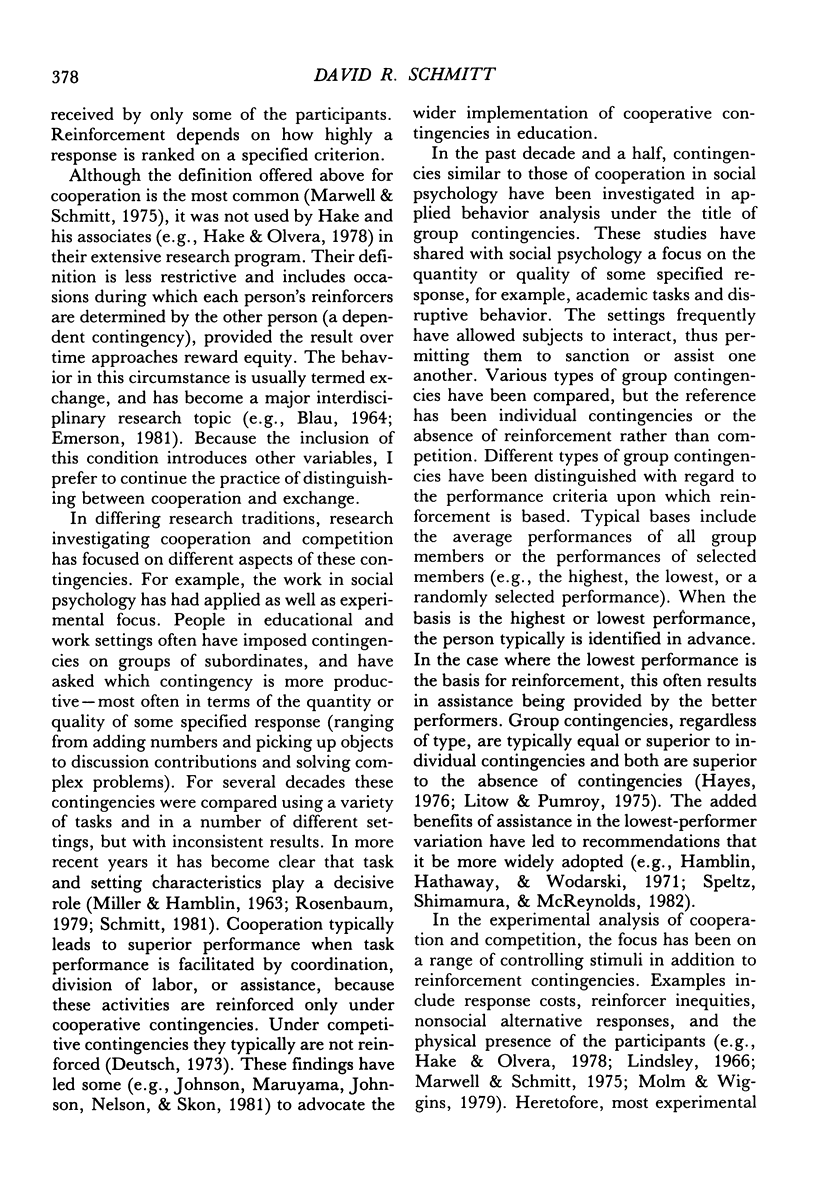
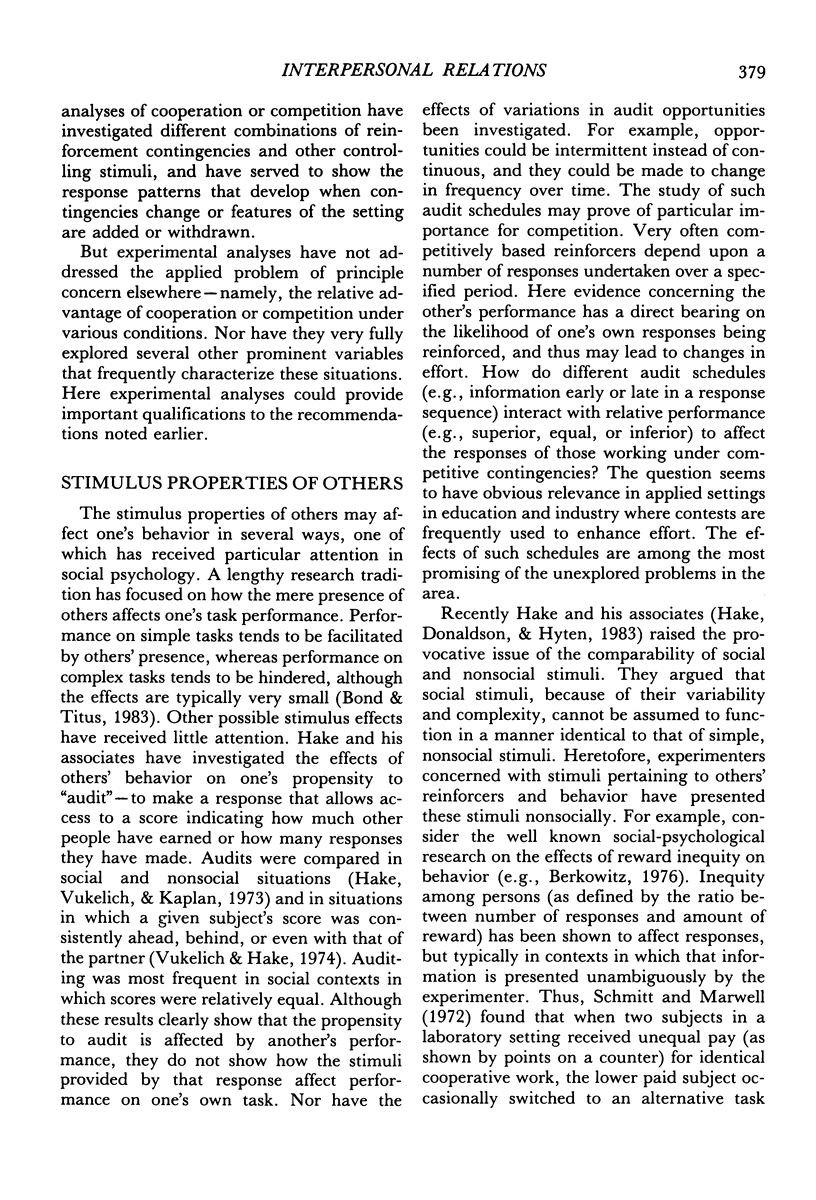
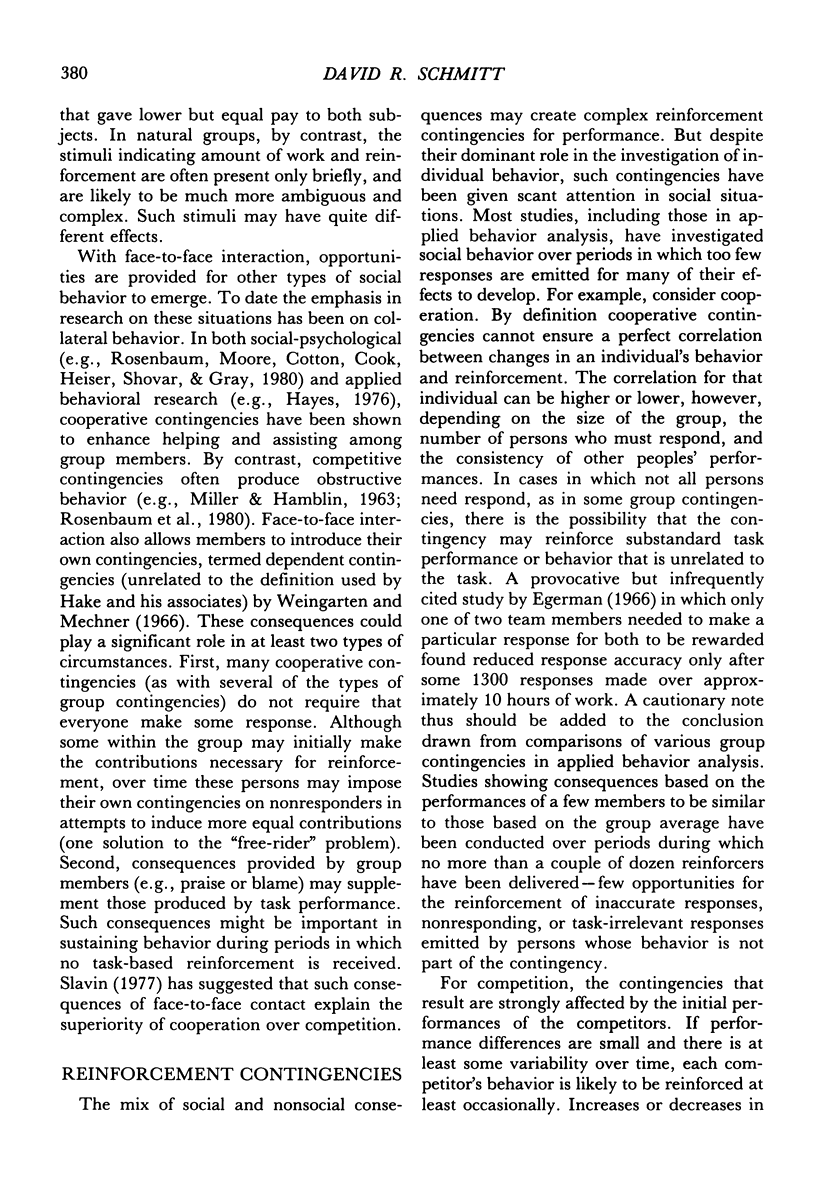
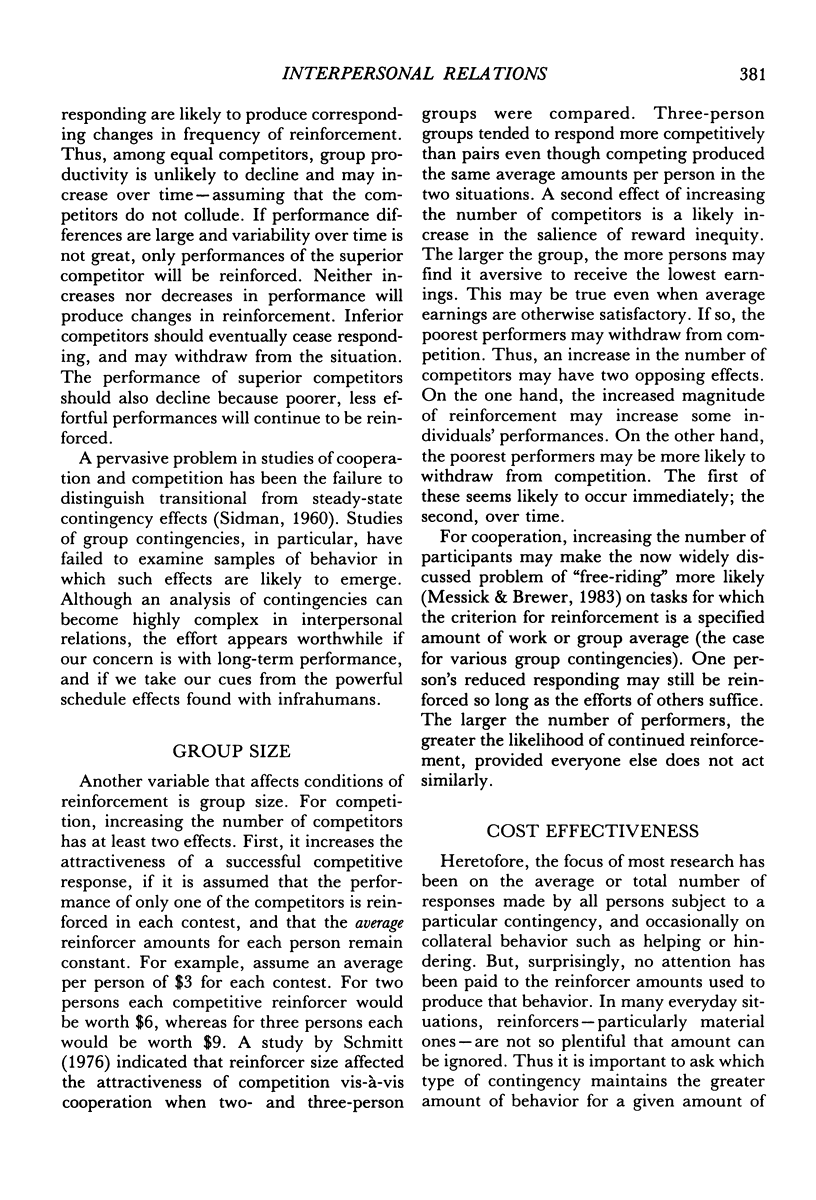
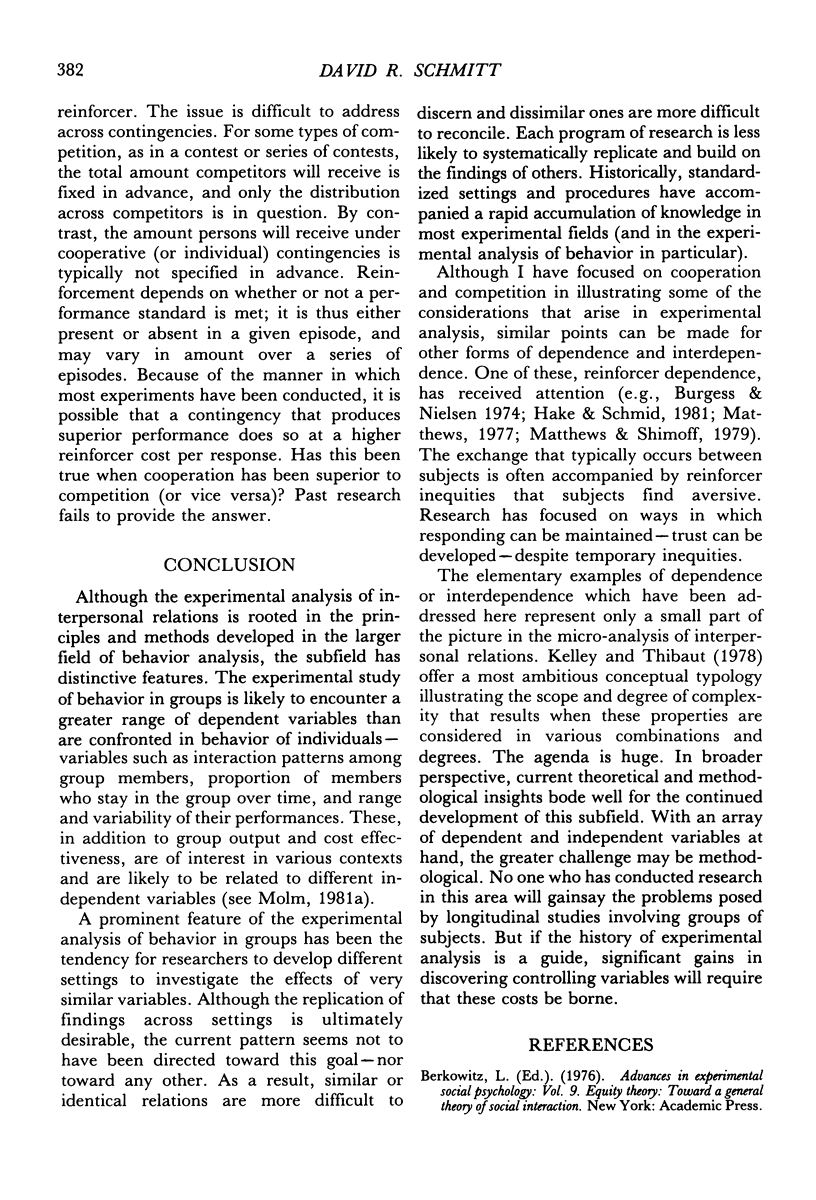
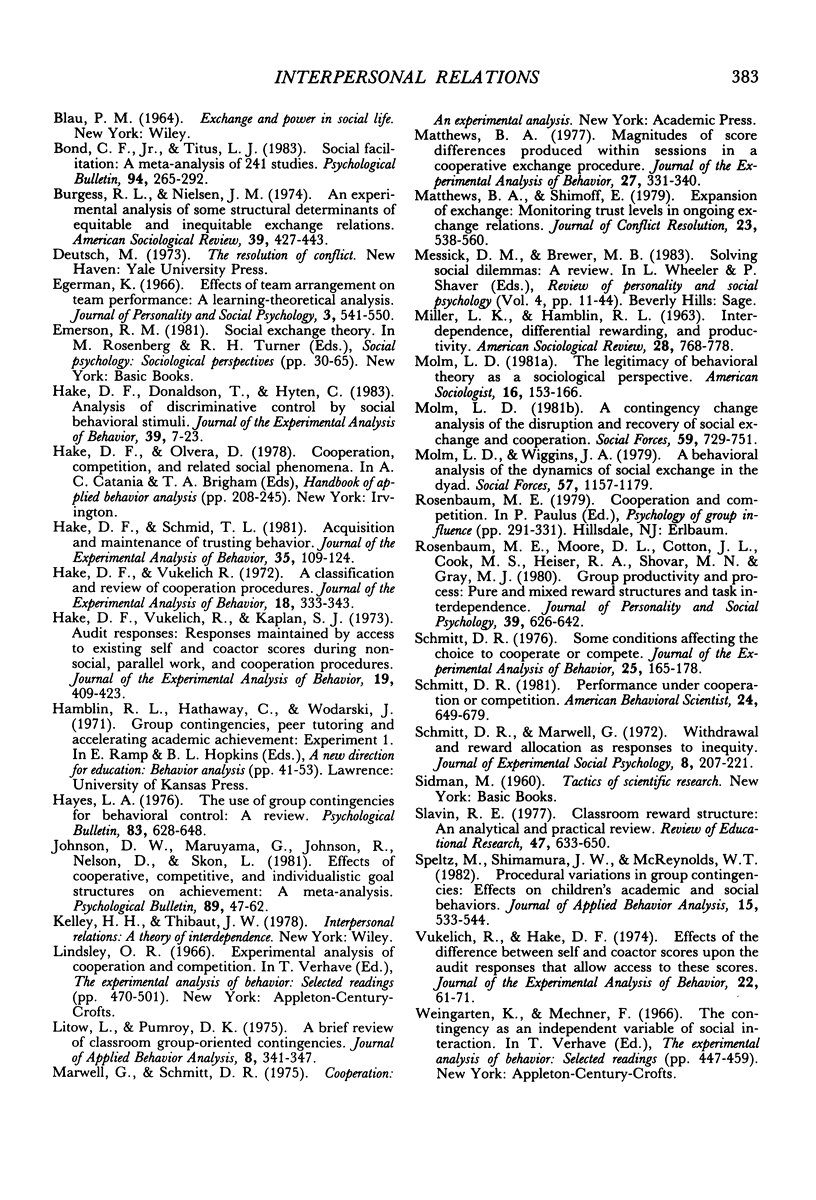
Selected References
These references are in PubMed. This may not be the complete list of references from this article.
- Bond C. F., Jr, Titus L. J. Social facilitation: a meta-analysis of 241 studies. Psychol Bull. 1983 Sep;94(2):265–292. [PubMed] [Google Scholar]
- Egerman K. Effects of team arrangement on team performance: a learning-theoretic analysis. J Pers Soc Psychol. 1966 May;3(5):541–550. doi: 10.1037/h0023289. [DOI] [PubMed] [Google Scholar]
- Hake D. F., Donaldson T., Hyten C. Analysis of discriminative control by social behavioral stimuli. J Exp Anal Behav. 1983 Jan;39(1):7–23. doi: 10.1901/jeab.1983.39-7. [DOI] [PMC free article] [PubMed] [Google Scholar]
- Hake D. F., Schmid T. L. Acquisition and maintenance of trusting behavior. J Exp Anal Behav. 1981 Jan;35(1):109–124. doi: 10.1901/jeab.1981.35-109. [DOI] [PMC free article] [PubMed] [Google Scholar]
- Hake D. F., Vukelich R. A classification and review of cooperation procedures. J Exp Anal Behav. 1972 Sep;18(2):333–343. doi: 10.1901/jeab.1972.18-333. [DOI] [PMC free article] [PubMed] [Google Scholar]
- Hake D. F., Vukelich R., Kaplan S. J. Audit responses: responses maintained by access to existing self or coactor scores during non-social, parallel work, and cooperation procedures. J Exp Anal Behav. 1973 May;19(3):409–423. doi: 10.1901/jeab.1973.19-409. [DOI] [PMC free article] [PubMed] [Google Scholar]
- Hayes L. A. The use of group contingencies for behavioral control: a review. Psychol Bull. 1976 Jul;83(4):628–648. [PubMed] [Google Scholar]
- Litoe L., Pumroy D. K. A brief review of classroom group-oriented contingencies. J Appl Behav Anal. 1975 Fall;8(3):341–347. doi: 10.1901/jaba.1975.8-341. [DOI] [PMC free article] [PubMed] [Google Scholar]
- Matthews B. A. Magnitudes of score differences produced within sessions in a cooperative exchange procedure. J Exp Anal Behav. 1977 Mar;27(2):331–340. doi: 10.1901/jeab.1977.27-331. [DOI] [PMC free article] [PubMed] [Google Scholar]
- Schmitt D. R. Some conditions affecting the choice to cooperate or compete. J Exp Anal Behav. 1976 Mar;25(2):165–178. doi: 10.1901/jeab.1976.25-165. [DOI] [PMC free article] [PubMed] [Google Scholar]
- Speltz M. L., Shimamura J. W., McReynolds W. T. Procedural variations in group contingencies: effects on children's academic and social behaviors. J Appl Behav Anal. 1982 Winter;15(4):533–544. doi: 10.1901/jaba.1982.15-533. [DOI] [PMC free article] [PubMed] [Google Scholar]
- Vukelich R., Hake D. F. Effects of the difference between self and coactor scores upon the audit responses that allow access to these scores. J Exp Anal Behav. 1974 Jul;22(1):61–71. doi: 10.1901/jeab.1974.22-61. [DOI] [PMC free article] [PubMed] [Google Scholar]


